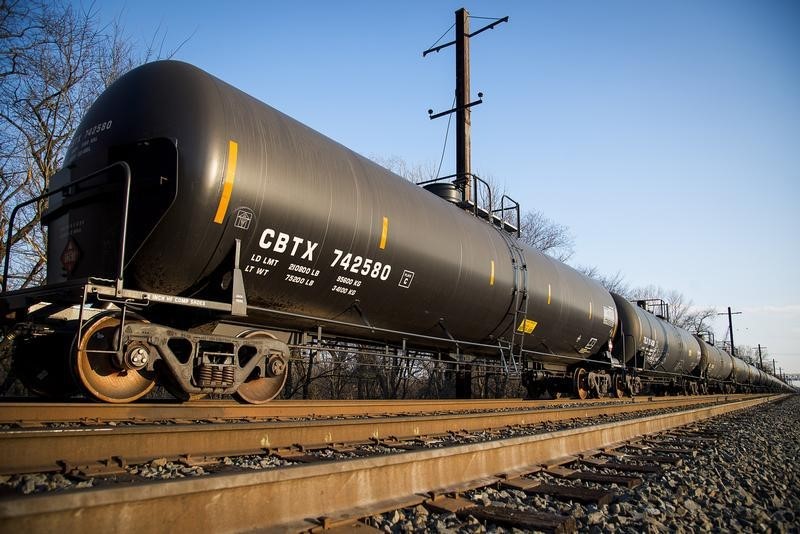By Erwin Seba and Arathy Somasekhar
HOUSTON (Reuters) -The U.S. Coast Guard warned of possible Texas port closures from Corpus Christi to Houston and began restricting vessel traffic because of Tropical Storm Beryl, which is expected to become a hurricane before making landfall by Monday morning south of Port Lavaca.
Port closures could bring to a temporary halt shipments of crude oil to refineries and motor fuels from those plants.
Port condition “yankee” was set by the captain of the port of Corpus Christi on Saturday afternoon from the Colorado Locks to the U.S. Mexico border. Under that condition, all vessel movement and cargo operations are restricted.
Oil producer Shell (LON:) Plc completed the evacuation of workers from its Perdido production platform in the U.S.-regulated Gulf of Mexico ahead of the approach of the storm, the company said on Friday night.
Production on Perdido was shut prior to the evacuations. Shell said it also evacuated workers from the Whale platform, which is due to start production later this year.
Gibson Energy (TSX:), which operates a large oil terminal in Corpus Christi, said operations were continuing, but it would take further steps depending on the forecast.
The center of Beryl is expected to approach the Texas coast on Sunday and make landfall on Monday. The storm was moving on Saturday with maximum sustained winds near 60 mph (95 km/h), the National Hurricane Center said.
The latest forecasts would put Corpus Christi on the dry side of the storm where the lowest winds and least rain could be expected. But Beryl could bring gale-force winds to the port, which is why the Coast Guard restricts traffic or shuts the port.
Most of the northern Gulf’s offshore oil and gas production is east of Beryl’s forecast track. However, Port Lavaca at Texas’ Matagorda Bay is key for industrial and petrochemical production, and it has some onshore drilling sites, and oil and gas wells. The nearby port of Calhoun is a pipeline hub.
U.S. Gulf of Mexico offshore production of about 1.8 million barrels per day accounts for about 14% of total output, according to the U.S. Energy Information Administration. Any impact on supplies could push up prices of U.S. oil and offshore crude grades.
Oil major Chevron Corp (NYSE:), among the biggest U.S. offshore producers, said on Friday that production from its operated assets remained normal. But it evacuated nonessential personnel from some of its Gulf of Mexico facilities.
Murphy Oil Corp (NYSE:) said it has not shut in production or evacuated personnel, and continues to monitor the storm.


